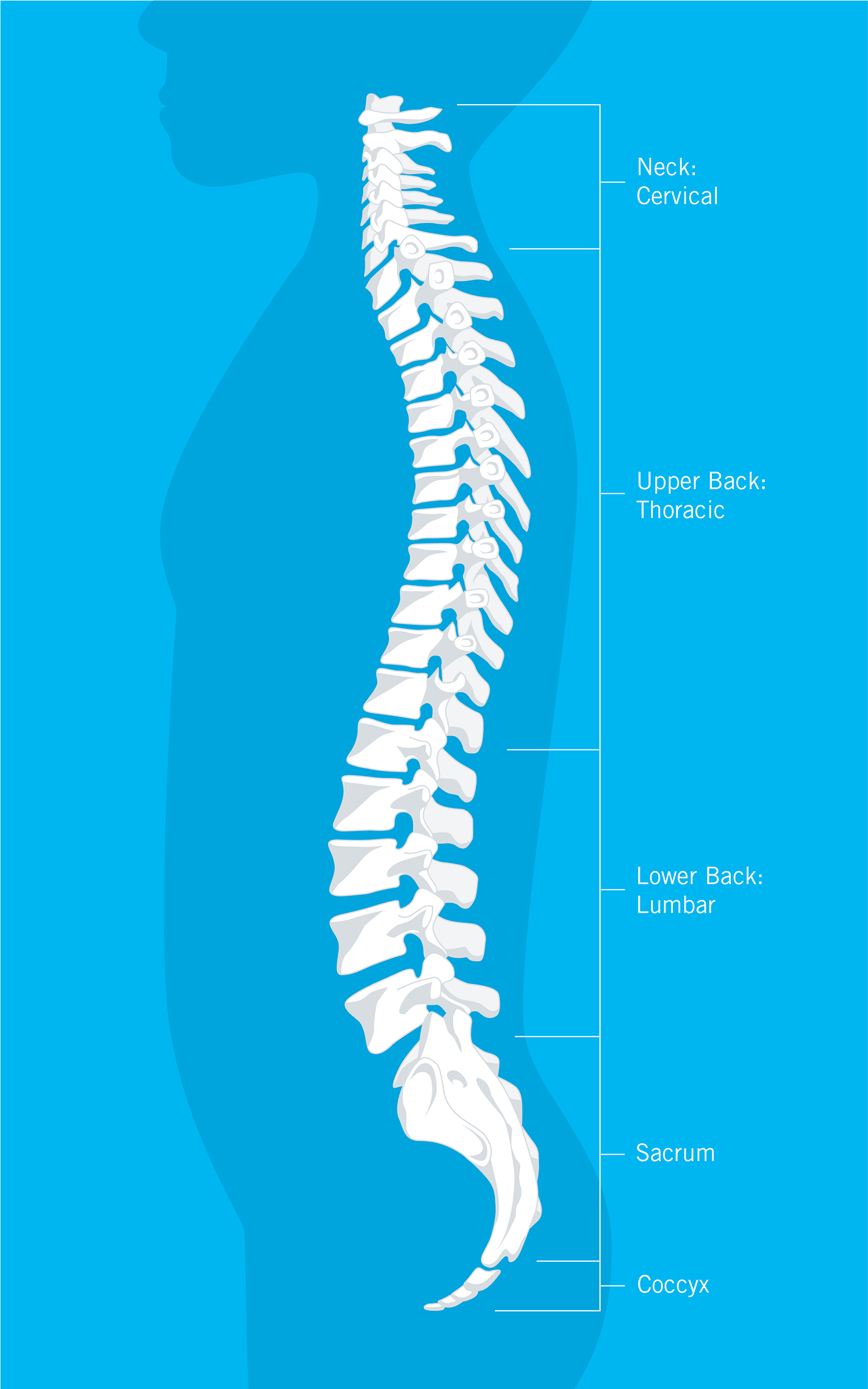
Popular Locations
- Yale New Haven Children's Hospital
- Yale New Haven Hospital - York Street Campus
- Yale New Haven Hospital - Saint Raphael Campus

Published February 03, 2025

A sudden sports injury is an obvious red flag to seek medical attention. Yet other causes of lower back pain may be harder to pinpoint.
Neck pain correlates with the cervical spine, upper back pain correlates with the thoracic spine and lower back pain is associated with lumbar spine. However, pain can originate in one part of the body and radiate elsewhere.
“Patients will point to the area that hurts and sometimes they’ll say, ‘I have low back pain,’ but they’re pointing to the thoracic or cervical spine. So, I’ll try to clarify with them,” said spine surgeon Raj Gala, MD, assistant professor of orthopedic surgery at Yale School of Medicine.
A physical exam and description of symptoms can help lead to treatments that relieve pain, even if the source is never identified.
“We might get an X-ray, but we may not even get to the MRI because by that time we may have been able to treat their pain,” said Dr. Gala. “A common misconception is that anytime there is spine pain we need to go straight to an MRI.”

Common symptoms associated with low back pain include:
There are many causes of low back pain, and sometimes symptoms that are initially subtle can slowly worsen over time. Arthritis, nerve pain, muscular pain, trauma, tumors, infection, pinched nerves, and disc herniations can all lead to low back pain – but recent research suggests that lifestyle and other factors can play a big role also.
“There are a lot of factors besides just the anatomic structures that can cause back pain. So we carefully look at biological, psychological and social factors,” said spine surgeon Mihir Gupta, MD, assistant professor of neurosurgery at Yale School of Medicine. “Other aspects of our lives and our health can worsen many kinds of pain in the body, especially back pain. So we have to think broadly and ask – why is back pain happening and what could be making it worse?”
For example, anxiety, depression, stress, obesity and smoking can all contribute to low back pain.
“We all know how nicotine and smoking affect the lungs, but it also clogs arteries, which give blood supply to your spine. Smoking constricts those tiny arteries that are going into your spine and discs. So, people who smoke don’t get enough blood flow to their discs, leading to faster disc degeneration,” said Dr. Gala. “I've had several patients who had severe back pain, and they were smokers, and we got to the point of scheduling back surgery. They quit smoking before the surgery for health reasons and to lower their complication risk. But their back pain actually went away after they quit smoking. They avoided a major operation by making a healthy choice.”
Red flags prompting immediate medical attention include bladder or bowel changes as well as weakness in the legs. Patients with other medical conditions such as autoimmune disease, infections, cancer or trauma should also seek medical attention if they experience new back pain.
There is a wide variety of treatments for low back pain that typically start conservatively and progress as needed. Most patients begin with physical therapy and ice as well as over the counter pain relief such as Tylenol, ibuprofen and patches or creams designed to address pain.
If that doesn’t help, patients sometimes require stronger medications including medications targeting nerve pain, inflammation, or muscle spasms. Procedures such as injections can help manage certain types of back pain, but a thorough clinical assessment is required first in order to identify specific sources of pain.
In some cases, surgery may be necessary if structural stability of the spine is compromised or there is pressure on the nerves or spinal cord.
“The majority of these surgeries are elective in the sense that they're not emergencies and that patients have a choice. With or without surgery, we have to have a strong patient-physician partnership to work together over the long haul,” said Dr. Gupta. “For anyone who has been offered back surgery, they should ask of their surgeon as to activity levels, follow up plans and what the long term really looks like. In parallel, they should think about their own functional goals. How will their life be affected with or without surgery?”
In rare cases, surgery is necessary if related to conditions such as trauma, infection or cancer.
Dr. Gala and Dr. Gupta say many cases of low back pain can be treated at home with things like ice, activity modification, stretching and over-the-counter agents. But if that pain is lingering, it’s worth getting evaluated.
“Pain that affects one’s life or functioning is a reason to seek medical attention,” said Dr. Gupta. “It can happen gradually and sometimes we can neglect or miss it. Listen to the people around you; often it’s family members who suggest you seem different or start worrying about your pain on your behalf. We naturally tend to compensate for pain and try to work through it, but getting it evaluated is the safest thing to do.”